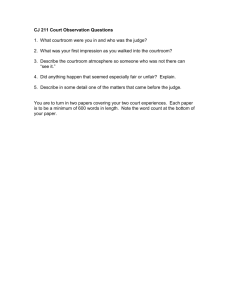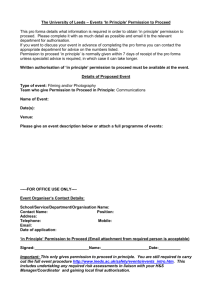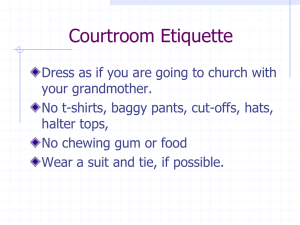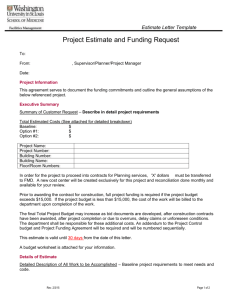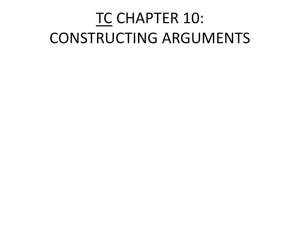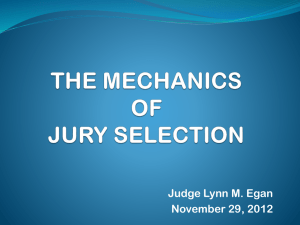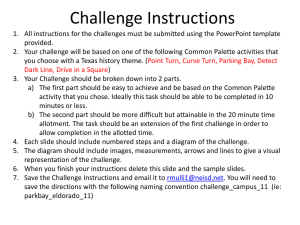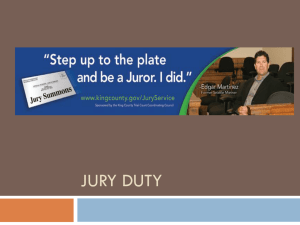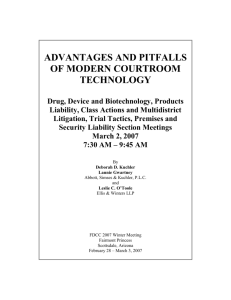high profile case checklist
advertisement
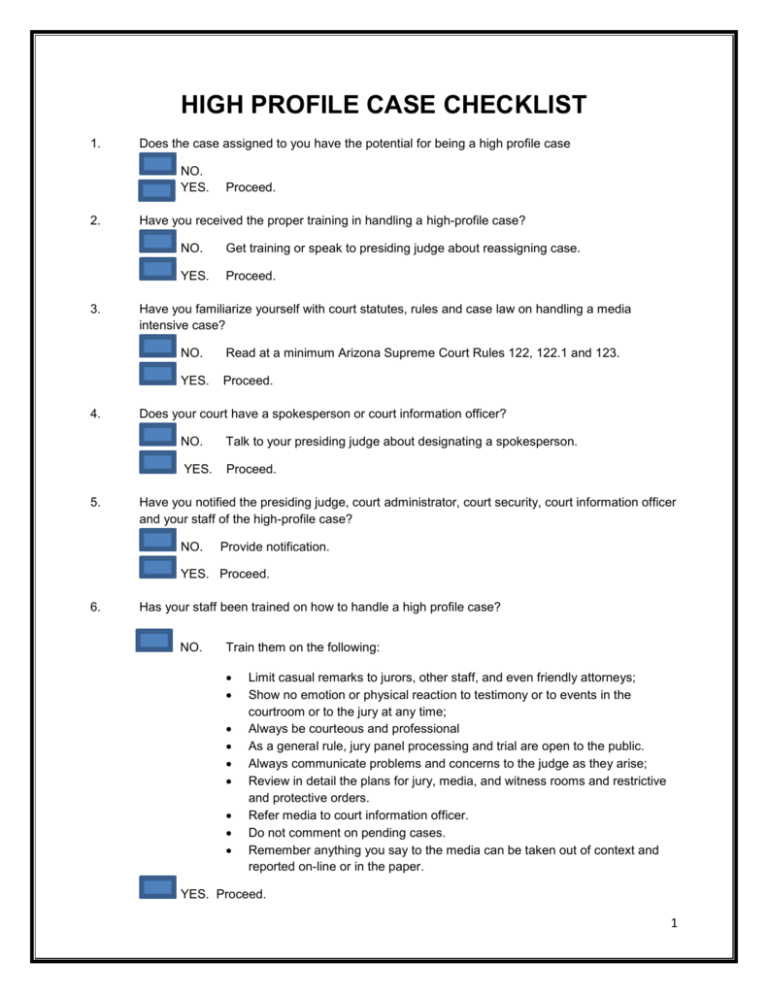
HIGH PROFILE CASE CHECKLIST 1. Does the case assigned to you have the potential for being a high profile case NO. YES. 2. 3. 4. 5. Proceed. Have you received the proper training in handling a high-profile case? NO. Get training or speak to presiding judge about reassigning case. YES. Proceed. Have you familiarize yourself with court statutes, rules and case law on handling a media intensive case? NO. Read at a minimum Arizona Supreme Court Rules 122, 122.1 and 123. YES. Proceed. Does your court have a spokesperson or court information officer? NO. Talk to your presiding judge about designating a spokesperson. YES. Proceed. Have you notified the presiding judge, court administrator, court security, court information officer and your staff of the high-profile case? NO. Provide notification. YES. Proceed. 6. Has your staff been trained on how to handle a high profile case? NO. Train them on the following: Limit casual remarks to jurors, other staff, and even friendly attorneys; Show no emotion or physical reaction to testimony or to events in the courtroom or to the jury at any time; Always be courteous and professional As a general rule, jury panel processing and trial are open to the public. Always communicate problems and concerns to the judge as they arise; Review in detail the plans for jury, media, and witness rooms and restrictive and protective orders. Refer media to court information officer. Do not comment on pending cases. Remember anything you say to the media can be taken out of context and reported on-line or in the paper. YES. Proceed. 1 7. Would a Media Management Order be helpful? NO. YES. 8. Will cameras be allowed in the courtroom? NO. YES. 9. Issue order. Also consider whether restrictive or protective orders are necessary. Make sure you have legal justification and it is on the record. Consider the following questions: How many cameras? Consider designating a pool television camera organization that will provide feed to other media outlets. Where will cameras be placed and use? Still cameras? Television cameras? Make sure cable does not cause tripping hazard. Real time or delayed coverage? Are wireless microphones allowed? When can recording begin? When must it stop? Who can be filmed? (No victims unless permission given, no jurors inside or outside courthouse until trial verdict is over. No documents/paperwork.) Direct lawyers to identify seating needs to the court prior to hearing/trial. seating? NO. Do you have enough Ask yourself the following questions: Should the case be moved to a larger courtroom if one is available? Do you have a plan to allocate seating (lottery, first come first serve, seating passes)? In allocating seating, how many seats will be provided to the media? Have you ensured that the victim and their family have seats? Have you defined family as this number may increase over time? Have you ensured access to the general public? Have you designated which seats are reserved? How will you enforce seating restrictions? YES. Proceed. 7. Are there additional security needs? NO. Just to be sure, consider the following security related needs. Safety of judge and staff. Is after hour’s security needed? Do you and your staff know the procedure for reporting threats or unusual situations? Safety of jurors. Typically in Arizona jurors are not sequestered. Should jurors be sequestered? Is after hour’s security needed? 2 Safety of lawyers and parties. Do you have the ability to have them enter or exit through separate entrances? How will you handle their personal security? Will you allow their personal security to be armed? Safety of witnesses/victims. Are they in protective custody? Who does law enforcement contact to escort these individuals into the building? Will you allow them to be screened differently? Use different elevators? Etc. Is your staff properly trained for evacuations and do they know how to ensure that the jury will get out of the building? Do you have security screening at the doors to the courthouse? Should additional security screening be provided at the courtroom doors? Is security needed in the courtroom? Is your staff doing a courtroom sweep before each court session begins? Is law enforcement allowed to be armed or do they need to secure weapons? YES. See list of issues above. Then proceed. 8. 10. Do you have an area for media satellite trucks to park that is away from the jurors, witnesses and general public? NO. Consider ordering media to park in certain areas. Determine how you will enforce parking? YES. Who will enforce parking? Then Proceed. Do you have a communication plan if trial is delayed, i.e., lawyer is sick, judge is sick, courthouse power is out? NO. Determine how notice will be provided to lawyers, parties, media and the public. YES. Proceed. 11. Do you have a safe and secure place for jurors and witnesses to wait before courtroom is unlocked? NO. Identify space, if possible. YES. Proceed. 12. Have you provided direction on electronic recording devises and what is and permissible and how to get a copy of a transcript? NO. Provide directions YES. Proceed. 13. Have your instructed the jury on special issues that come up in high-profile cases? NO. Instruct jury on media. Provide discharge instructions. YES. Proceed. 3
